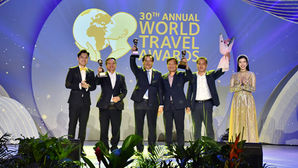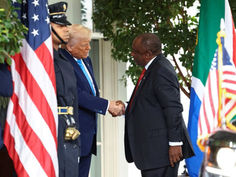Lawrence Wong’s Ruling Party Wins Decisive Mandate in Singapore General Election
- Rahaman Hadisur

- May 5, 2025
- 2 min read
Hadisur Rahman, JadeTimes Staff
H. Rahman is a Jadetimes news reporter covering the Asia

Singapore’s ruling People’s Action Party (PAP) secured a commanding victory in the country’s general elections, cementing Prime Minister Lawrence Wong’s leadership with a clear parliamentary mandate. Official results confirmed early on Sunday that the PAP crossed the 49-seat threshold required to form a majority government in the 97-seat legislature, with preliminary counts indicating it would retain all but 10 seats.
Addressing supporters at Yio Chu Kang stadium, a smiling Wong expressed gratitude: “We are grateful once again for your strong mandate, and we will honour it.” The win reinforces Wong’s authority as he faces pressing global economic challenges, particularly trade tensions sparked by U.S. tariffs.
Wong, who succeeded former Prime Minister Lee Hsien Loong last year, was widely credited for his leadership during the COVID-19 pandemic and sought a firm endorsement to guide Singapore through a volatile global economy. He warned voters of the potential repercussions from U.S. protectionist policies, stating the city-state must remain open and competitive to weather such headwinds.
While the PAP’s dominance has long been a hallmark of Singaporean politics, this election came amid increased scrutiny and a more engaged electorate. Notable controversies preceding the polls included a high-profile corruption case involving former Transport Minister S Iswaran, and the resignation of two lawmakers over an “inappropriate” relationship. The long-standing public feud between Lee Hsien Loong and his brother Lee Hsien Yang, now an opposition supporter in exile, also added to the political backdrop.
Despite these issues, the PAP’s well-oiled campaign machinery and public spending initiatives including cash handouts and grocery vouchers to ease the cost of living appeared to resonate with voters.
Political analyst PN Balji noted that “the intense campaigning by PM Lawrence Wong and former PM Lee Hsien Loong in the hot seats must have helped a lot,” adding that concerns over Trump-era tariffs likely influenced voter sentiment.
Meanwhile, the opposition Workers’ Party (WP), which made historic gains in 2020 by capturing 10 seats, sought to build on that momentum. With charismatic candidates and a strong focus on economic concerns, the WP drew large crowds and emphasized the need for more checks on PAP’s authority. However, those crowds did not translate into significant seat gains this time.
Voters like 40-year-old Shi’ai Liang voiced appreciation for the fresh perspectives offered by newer candidates. “Whether or not they get elected, I hope we see and hear more of them, and get to know them better,” she said.
While the election reaffirmed the PAP’s political dominance, it also highlighted a shifting landscape marked by growing calls for transparency and diversity in representation. Organizers and analysts suggest that Singapore’s politics, while stable, may be entering a new chapter of increased public engagement and accountability.











































Comments